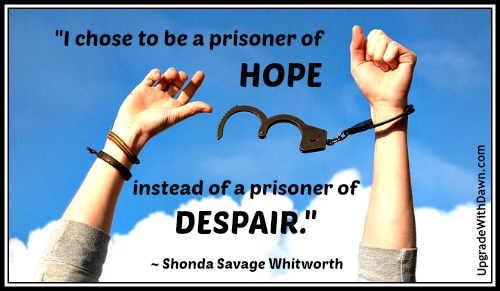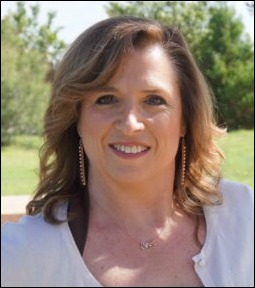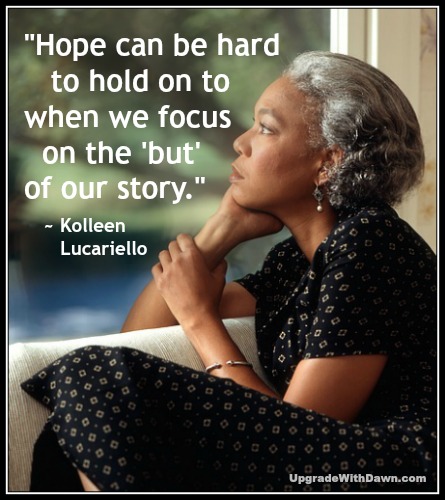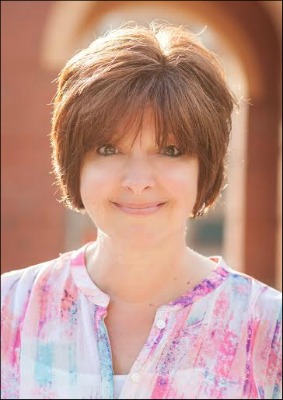When Circumstances Look Hopeless, Hope Prevails!
Dr. Michelle Bengtson was one of the first "strangers" who reached out to me when I was going through my Myeloma journey in 2019. It didn't take long for me to count her as a new friend. Her posts about hope encouraged me for many months.
In this special Hope UPGRADE, she tells us a little about her own journey, and encourages us to hold onto hope in our own tough circumstances.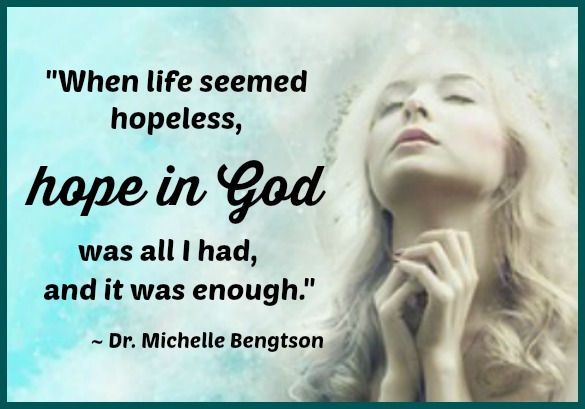 "When everything around me looked hopeless," Michelle says, "hope was all I had to hang onto."
"When everything around me looked hopeless," Michelle says, "hope was all I had to hang onto."
Like Michelle, I (Dawn) believe hope is no small thing to hang onto! It is solid. It can be counted on—because our hope is in the God of Hope!
Michelle continues . . .
My husband and I were on the way to his oncologist appointment. As he drove, my cell phone rang. Across the screen scrolled my doctor’s name and phone number.
Thinking they were just calling to confirm an upcoming appointment I had scheduled, I answered and was greeted with the words no one ever expects nor wants to hear—“I hate to have to tell you this, Dr. Bengtson, but you have cancer. We need to schedule you for surgery.”
Wait. What? This must be a mistake.
They must have the wrong person. I’m healthy.
We’re on our way to see my husband’s doctor. I wouldn’t have been surprised if he had been given another bad report, but me?
“Dr. Bengtson? We need to schedule surgery. Would now be a convenient time to do that?”
I could hardly think straight, much less talk on the phone and access my calendar.
“Um, I’m sorry. I’m going to have to call you back.”
As my husband and I sat in the waiting room of his oncologist’s office, we sat in silence, holding hands. Neither of us needed to say anything… we knew what the other was thinking, and words wouldn’t change anything.
In as short as a minute, my mind started going down the “what if?” rabbit trail. But I knew how very counterproductive that usually was.
I had just written my book, “Breaking Anxiety’s Grip: How to Reclaim the Peace God Promises,” and turned it in to my publisher two weeks before.
As I sat in silence, I thought,
“You have just written the script for the next phase of your journey. Either you can go down the slippery slope of worry, fear, and anxiety, or you can choose to trust God and remain in His peace. This did not take God by surprise, and He already knows how He’s going to help you navigate your future.”
In that moment, a calm assurance came over me consistent with Philippians 4:7 (NIV), “And the peace of God, which transcends all understanding, will guard your hearts and your minds in Christ Jesus.”
There was no earthly explanation.
There was no earthly explanation for the peace I felt. It had to have come from God.
As time progressed, I underwent surgery, and began treatment. My approach during that time was different than most. I told my doctor that I didn’t want to know how many treatment cycles she expected, because I didn’t want to wish my life away, waiting for treatment to be over.
I wanted to wake up every day thankful that God gave me a new day, and ask Him how He wanted me to spend it.
As I went through treatment—while my husband dealt with his own cancer—life could have felt very hopeless. Yet through my husband’s first bout of cancer, we were told by doctors to get our affairs in order because he wasn’t going to live.
The doctors were wrong, and God had another plan.
Through that experience, I learned that doctors diagnose and make their best guestimate, but the Lord’s report is the one that I choose to listen to and hold onto.
Jeremiah 29:11 assures us,
“'For I know the plans I have for you,' declares the LORD, 'plans to prosper you and not to harm you, plans to give you hope and a future.'”
Because I could look back over my life and see God’s faithfulness so many times before, in this new journey, when life seemed hopeless, hope in God was all I had, and it was enough.
I learned that when live seems hopeless, there are ways to hold onto hope:
- Think back on your life, and record previous times when God was faithful to you.
- Look in the Bible for examples of when God was faithful then.
- Turn off the negative outside influences like the news and media and, instead, listen to praise and worship music.
- Write down promises in Scripture that apply to your situation.
- Pray and ask God to give you a greater measure of faith.
- Repeatedly thank God in advance for what He is going to do.
Jesus warned us that in this world, we would experience trials, but because of Him, hope prevails!
How will you maintain your hope when you face seemingly hopeless situations?
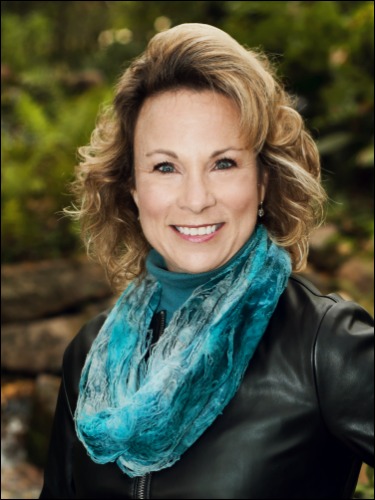 Dr. Michelle Bengtson is an international speaker, and author of the award-winning Hope Prevails: Insights from a Doctor’s Personal Journey through
Dr. Michelle Bengtson is an international speaker, and author of the award-winning Hope Prevails: Insights from a Doctor’s Personal Journey through 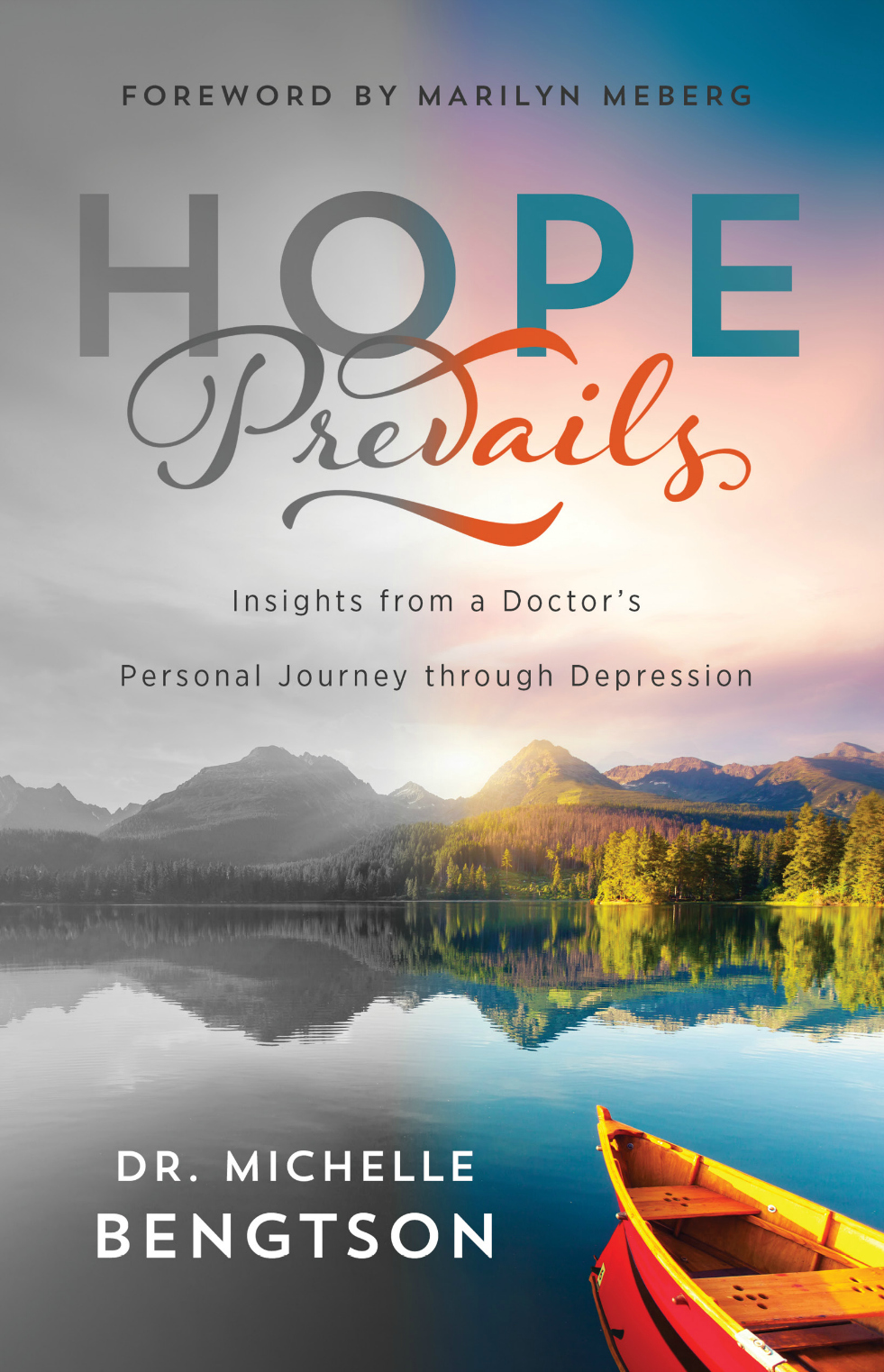 Depression, the award-winning companion, Hope Prevails Bible Study, and Breaking Anxiety’s Grip: How to Reclaim the Peace God Promises. A neuropsychologist in private practice for more than 20 years, this doctor knows pain and despair firsthand. She combines her professional expertise and personal experience with her faith to address her patients’ issues—both for those who suffer and the ones who care for them. Michelle blogs regularly on her own site and is the popular podcast show host of “Your Hope-Filled Perspective with Dr. Michelle Bengtson.”
Depression, the award-winning companion, Hope Prevails Bible Study, and Breaking Anxiety’s Grip: How to Reclaim the Peace God Promises. A neuropsychologist in private practice for more than 20 years, this doctor knows pain and despair firsthand. She combines her professional expertise and personal experience with her faith to address her patients’ issues—both for those who suffer and the ones who care for them. Michelle blogs regularly on her own site and is the popular podcast show host of “Your Hope-Filled Perspective with Dr. Michelle Bengtson.”
 1 Comment → Posted on
1 Comment → Posted on  Tuesday, April 14, 2020 at 9:02AM
Tuesday, April 14, 2020 at 9:02AM  Anxiety,
Anxiety,  Assurance,
Assurance,  Biblical perspective,
Biblical perspective,  Cancer,
Cancer,  Circumstances,
Circumstances,  Dr. Michelle Bengtson,
Dr. Michelle Bengtson,  Hold onto Hope,
Hold onto Hope,  Hope,
Hope,  Hope Prevails,
Hope Prevails,  Hopeless,
Hopeless,  Michelle Bengtson,
Michelle Bengtson,  Peace Upgrade Your Life
Peace Upgrade Your Life  Attitudes,
Attitudes,  Hope,
Hope,  Relationship with God
Relationship with God 




